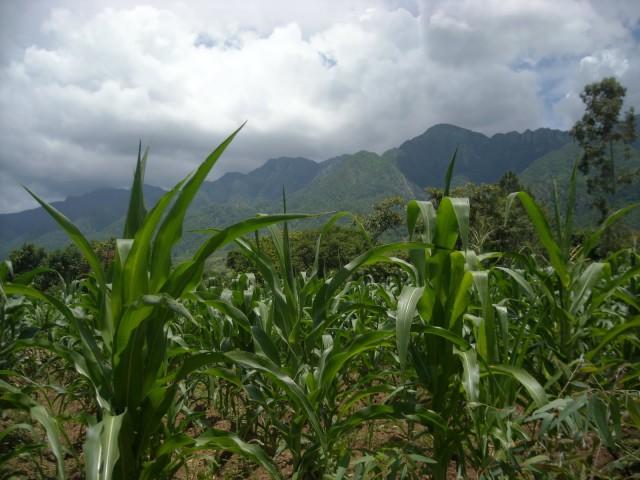
Studies and reports
Evidence for Development’s work provides in-depth poverty analysis that has been used by both government and non-government agencies for planning and reviewing their activities. We produce and support research on livelihoods, food security, adaptation to climate change and other topics, using the individual household method (IHM) and the household economy approach (HEA) where these are appropriate research tools.
The methods and approaches that we use have evolved over the past decade with the support of leading international development agencies. Pilot studies were funded by the UK Department for International Development (DfID) in 2004 and implemented under the auspices of Save the Children UK.
Livelihoods working papers
These livelihoods working papers are part of EfD’s contribution to the HyCRISTAL project (Integrating Hydro-Climate Science Into Policy Decisions for Climate-Resilient Infrastructure), funded by FCDO/NERC.
HyCRISTAL is a multi-disciplinary and multi-agency project under the Future Climate for Africa (FCFA) Programme. HyCRISTAL’s main objective is to improve knowledge of East African climate change and its impacts, to inform long-term decision-making in East Africa. The papers provide insight into contemporary rural livelihoods and challenges for sustainable development in the face of the climate emergency.
- Livelihood Zones & Household Economy Approach (HEA) Survey Report, Homa Bay County, Kenya (2018)
- Assessment of rural livelihoods in a lakeside community, NB, Homa Bay, Kenya (2018)
- Change, response and adaptation in a lakeshore village in Mukono District, Uganda (2017)
- Assessment of rural livelihoods in two lakeside communities, Mityana and Mukono District, Uganda (2016)
- Report on a pilot study in Mukono District, Uganda, using the Household Economy Approach (HEA) (2016)
Baseline information and project impact measurement
NGOs including Self Help Africa and Farm Africa are using the IHM to provide baseline information and measure the impact of their projects on smallholder farmers across sub-Saharan Africa. The IHM is also being used in the DfID/ESRC-funded study ‘Assessing Rural Transformations’ and in the major USAID-funded ‘Community Connector’ project in Uganda. Earlier studies in Uganda tracked changes over a 3-year period in the livelihoods of households moving from an internally displaced peoples’ camp in northern Uganda to their home villages.
The IHM was also used by UNHCR as part of a major multi-year study of their work to promote ‘self reliance’ among Malian refugee communities who had fled across the border to northern regions of Burkina Faso. This involved extensive capacity building work among UNHCR staff, local universities and post graduate students.
- Milk Solutions for Livelihoods and Self-Reliance, Burkina Faso: IHM Evidence (2018)
- Milk Solutions for Livelihoods and Self-Reliance, Burkina Faso: IHM evidence (2016)
- Assessing Rural Transformations in Karonga district, Malawi: IHM evidence (2015)
- Assessing Rural Transformations in Tigray, Ethiopia: IHM evidence (2015)
- Assessing Rural Transformations in Lilongwe district, Malawi: IHM evidence (2015)
- Assessing Rural Transformations in Oromia, Ethiopia: IHM evidence (2015)
- Livelihood baseline assessment of Malian refugees in Bobo-Dioulasso, Burkina Faso: Quantitative analysis of urban household economies (2015)
- Baseline assessment of Malian refugees in Burkina Faso, Part II: Qualitative social and economic study (2014)
- Livelihood baseline assessment of Malian refugees in Burkina Faso: Quantitative analysis of household economies (2014)
- Improving smallholder farmers' livelihoods through mango production and marketing project baseline IHM assessment, Salima, Malawi (2013)
- Livelihood zoning and rural wealth rankings HEA baseline report, Mbala and Luwingu Districts, Zambia (2013)
- Farm Enterprise Development for Food and Economic Security (FEDFES) project baseline IHM assessment, Chitipa, Malawi (2013)
- Nwoya District, northern Uganda: IHM baseline report (2013)
- Livelihoods in crisis: A longitudinal study in Pader, Uganda [Year three update] (2009)
- Livelihoods in crisis: A longitudinal study in Pader, Uganda [Year two update] (2008)
- Livelihoods in crisis: A longitudinal study in Pader, Uganda (2007)
Research on key development issues
Studies using the individual household method have shed new light on many important aspects of development, from assessing the accuracy of targeting in social protection projects to analysing the effects of input subsidies on household incomes. Other work (including initial IHM pilot studies) has provided quantitative information on the effects of HIV/AIDS on poverty and food security, and analysed the capacity of primary producers to adapt to volatile international commodity markets. An urban assessment has been conducted in Windhoek, Namibia, showing in detail the economic links between urban households and their home villages, and an on-going study is producing new insights into the links between household economies and malnutrition.
- Livelihood Zones & Household Economy Approach (HEA) Survey Report, Homa Bay County, Kenya (2018)
- Assessment of rural livelihoods in a lakeside community, NB, Homa Bay, Kenya (2018)
- Change, response and adaptation in a lakeshore village in Mukono District, Uganda (2017)
- Assessment of rural livelihoods in two lakeside communities, Mityana and Mukono District, Uganda (2016)
- Report on a pilot study in Mukono District, Uganda, using the Household Economy Approach (HEA) (2016)
Livelihoods reports for famine early warning
Our work with the USAID Famine Early Warning Systems Network (FEWS NET) – the world’s leading provider of food security analysis and early warning – includes livelihoods research, technical advice and the development of new analytical tools. The following FEWS NET reports were led by Evidence for Development.
Masters’ theses
Evidence for Development supports a variety of masters’ students to carry out original research using the individual household method. We seek to provide bursaries for highly promising local students at African universities, and IHM dissertation research has also been inspired by our postgraduate unit at King’s College London.
- Modeling the effects of maize price increases on rural household welfare [MA thesis, Stella Ngoleka] (2013)
- Assessing the impact and adoption of agro-forestry food security programmes on rural livelihoods: Evidence from southern Malawi [MA thesis, Lucky Mfungwe] (2012)
- The role of the agricultural input subsidy programme in rural poverty reduction [MA thesis, Nickson Kamanga] (2010)
- The cost of illness on agricultural production of rural households [MA thesis, Lauryn Khangamwa] (2010)